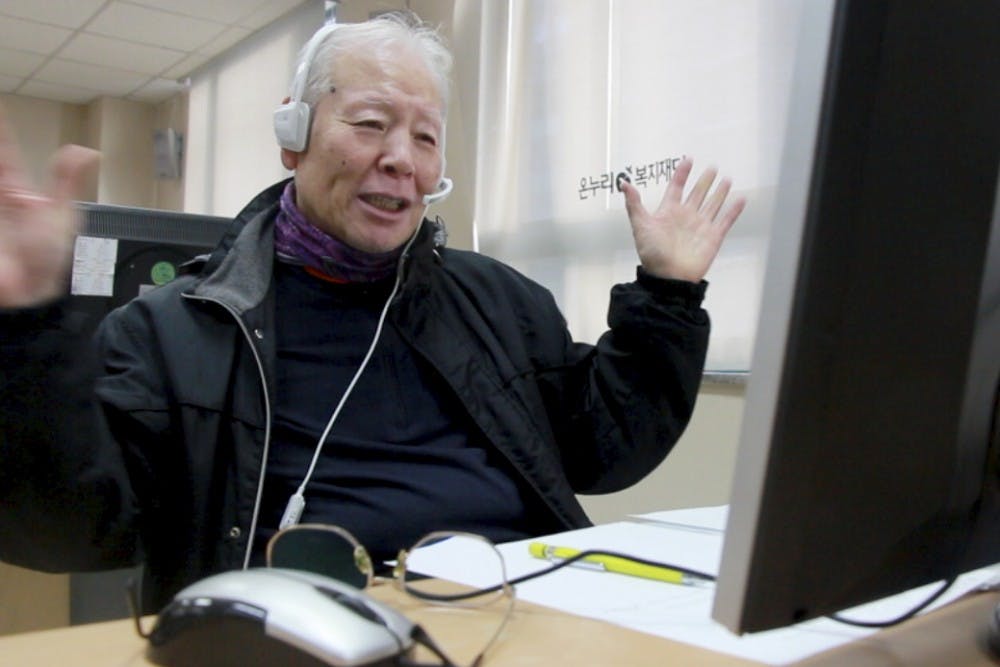The idea behind Seniors and Youth — SAY — started with a social mission to empower retired Korean senior citizens. When 2014 College graduate Quan Nguyen heard about the startup, he leaped at the opportunity to join his friend and founder of the company, Yongmin Cho.
SAY is a cross-cultural and cross-generational online Korean language service program that connects the Korean elderly with Korean language learners. It was initially launched at Princeton University and launched shortly after at Yale University.
The program allows Korean learners to practice conversational speaking with native speakers through one-on-one video chats over Skype or Google Hangout. Nguyen, who has also participated in the program as a student himself, said that speaking with a Korean elderly helps students to not only improve their conversational skills but also enhance their knowledge of Korean history and culture.
“My [senior] was 83 and she had lived through the [Korean] War...to learn what she had gone through...that was a really unique experience and it was very humbling to learn from her,” Nguyen said. “Our conversations had so much room for surprises because we came from different backgrounds and experiences. And no matter what conversation we had, she always contributed with her historical knowledge of Korea.”
The SAY curriculum, created in partnership with Korean professors at Princeton and Yale, focuses on improving conversational skills and provides weekly topics that relate to daily life in Korea.
At the core of SAY lies a social mission that attempts to tackle senior unemployment in Korea. According to Nguyen, nearly 30 percent of Korean seniors are unemployed and the average age of retirement is 53. By employing the Korean elderly, SAY provides an opportunity for retired seniors to have meaningful jobs that connect them with the younger generation.
“We wondered, ‘how do we make these seniors happier?’ Because a lot them live alone and are so idle, they want something productive and meaningful to do with the rest of their lives,” he said. “Just because they retired at 53 doesn’t mean they don’t want to work. We thought allowing them to communicate with younger people would provide something active and meaningful for seniors to do.”
SAY recruits teachers from senior centers in Korea through a rigorous interview and training process. It seeks seniors who are “thoughtful,” “well spoken” and able to communicate with the youth, many of whom come from diverse professional backgrounds in education, business and social service.
Haewon Cho, director of the Korean Language Program at Penn, said that speaking with an elderly person helps students practice formal speech.
“Students often say that the most difficult part of learning Korean is mastering Korean honorifics and speech styles. With Korean seniors, students can practice honorifics and polite speech styles in an authentic context,” she said.
Kelsey Henderson, a Princeton graduate who participated in SAY during her senior year as part of her advanced Korean course, said the program’s biggest draw was being paired with a Korean senior instead of a fellow college student.
“The seniors that participate in the program have so many interesting life experiences to share with you and it’s interesting to be introduced to topics through another point of view, with both respect to culture and age,” she said.
The program has so far connected about 50 pairs of seniors and youths. After operating as a volunteer based organization for two years, SAY recently changed its business model into a social enterprise and is on its way to becoming a full-fledged company. Although the program currently does not provide free services at Princeton and Yale, Nguyen said he hopes to relaunch the volunteer program at select colleges, including Penn, by the fall semester of 2017."
“As it is essential for students to find resources to practice Korean outside of class in order to improve their language skills, especially in a foreign language setting, I would definitely encourage my students to join SAY,” Cho said.









